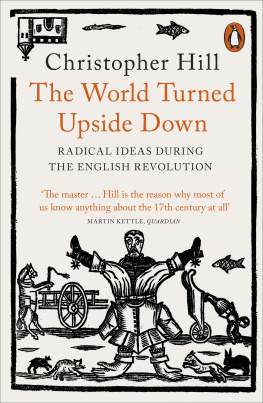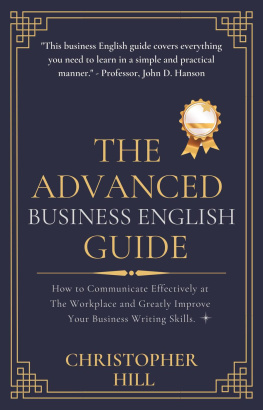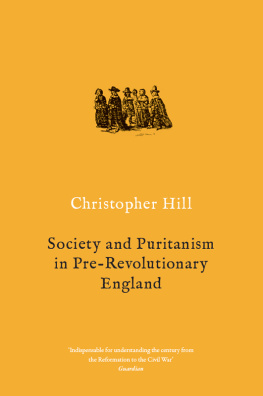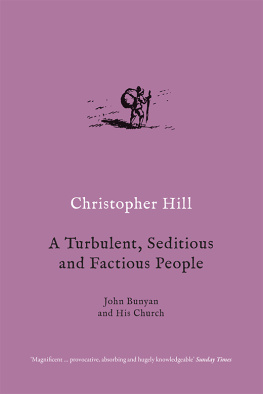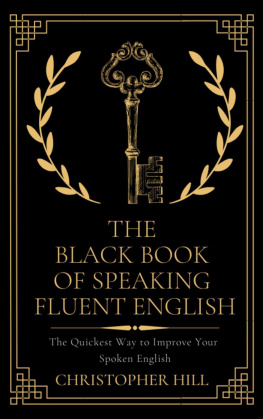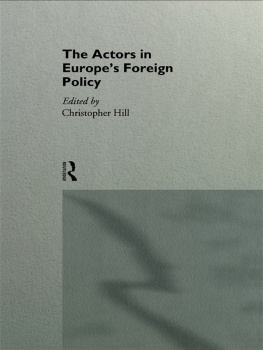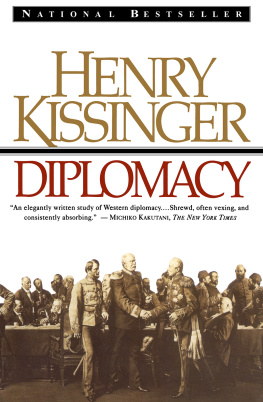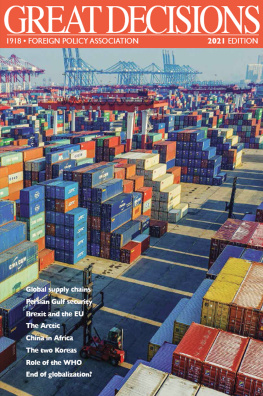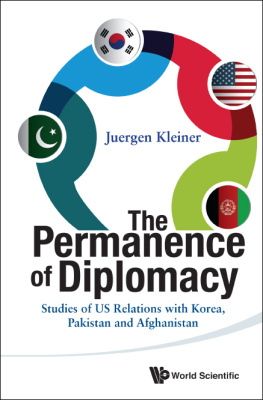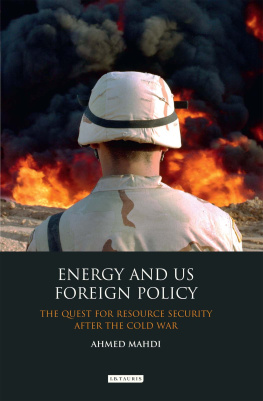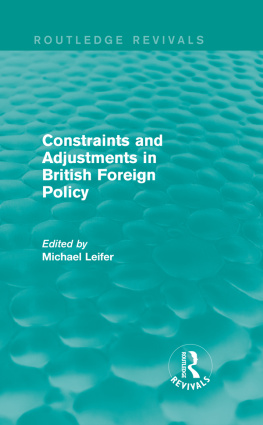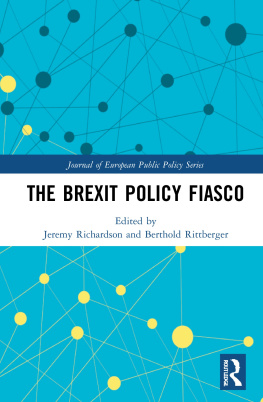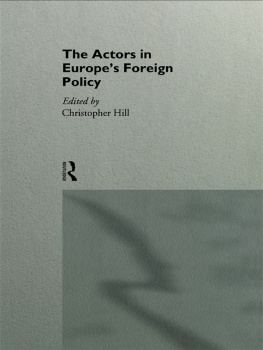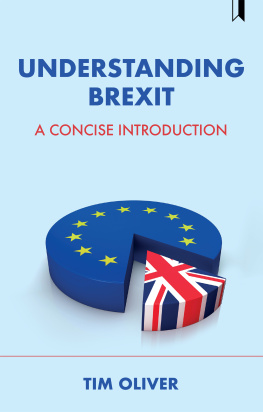Christopher Hill - The Future of British Foreign Policy: Security and Diplomacy in a World after Brexit
Here you can read online Christopher Hill - The Future of British Foreign Policy: Security and Diplomacy in a World after Brexit full text of the book (entire story) in english for free. Download pdf and epub, get meaning, cover and reviews about this ebook. year: 2019, publisher: John Wiley & Sons, Inc. (Polity Press), genre: Politics. Description of the work, (preface) as well as reviews are available. Best literature library LitArk.com created for fans of good reading and offers a wide selection of genres:
Romance novel
Science fiction
Adventure
Detective
Science
History
Home and family
Prose
Art
Politics
Computer
Non-fiction
Religion
Business
Children
Humor
Choose a favorite category and find really read worthwhile books. Enjoy immersion in the world of imagination, feel the emotions of the characters or learn something new for yourself, make an fascinating discovery.

- Book:The Future of British Foreign Policy: Security and Diplomacy in a World after Brexit
- Author:
- Publisher:John Wiley & Sons, Inc. (Polity Press)
- Genre:
- Year:2019
- Rating:5 / 5
- Favourites:Add to favourites
- Your mark:
- 100
- 1
- 2
- 3
- 4
- 5
The Future of British Foreign Policy: Security and Diplomacy in a World after Brexit: summary, description and annotation
We offer to read an annotation, description, summary or preface (depends on what the author of the book "The Future of British Foreign Policy: Security and Diplomacy in a World after Brexit" wrote himself). If you haven't found the necessary information about the book — write in the comments, we will try to find it.
The Future of British Foreign Policy: Security and Diplomacy in a World after Brexit — read online for free the complete book (whole text) full work
Below is the text of the book, divided by pages. System saving the place of the last page read, allows you to conveniently read the book "The Future of British Foreign Policy: Security and Diplomacy in a World after Brexit" online for free, without having to search again every time where you left off. Put a bookmark, and you can go to the page where you finished reading at any time.
Font size:
Interval:
Bookmark:
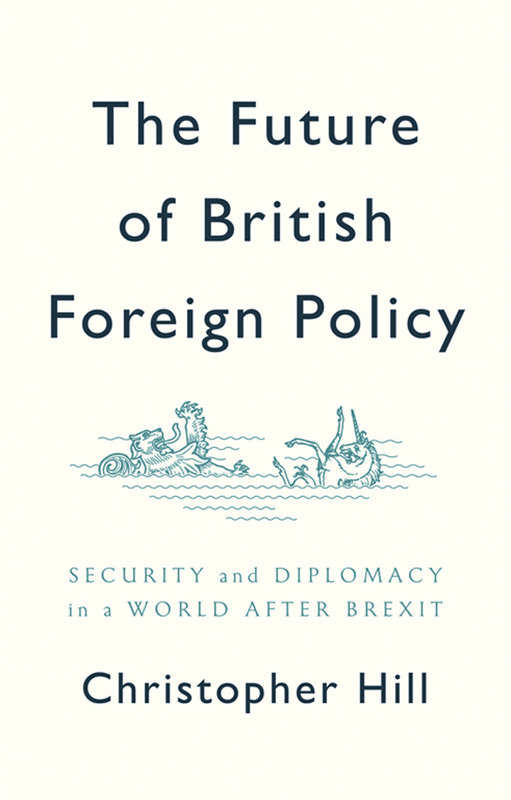
Christopher Hill
polity
Copyright Christopher Hill 2019
The right of Christopher Hill to be identified as Author of this Work has been asserted in accordance with the UK Copyright, Designs and Patents Act 1988.
First published in 2019 by Polity Press
Polity Press
65 Bridge Street
Cambridge CB2 1UR, UK
Polity Press
101 Station Landing
Suite 300
Medford, MA 02155, USA
All rights reserved. Except for the quotation of short passages for the purpose of criticism and review, no part of this publication may be reproduced, stored in a retrieval system or transmitted, in any form or by any means, electronic, mechanical, photocopying, recording or otherwise, without the prior permission of the publisher.
ISBN-13: 978-1-5095-2461-7 (hardback)
ISBN-13: 978-1-5095-2462-4 (paperback)
A catalogue record for this book is available from the British Library.
Typeset in 11 on 13pt Sabon
by Toppan Best-set Premedia Limited
Printed and bound in the UK by CPI Group (UK) Ltd, Croydon
The publisher has used its best endeavours to ensure that the URLs for external websites referred to in this book are correct and active at the time of going to press. However, the publisher has no responsibility for the websites and can make no guarantee that a site will remain live or that the content is or will remain appropriate.
Every effort has been made to trace all copyright holders, but if any have been overlooked the publisher will be pleased to include any necessary credits in any subsequent reprint or edition.
For further information on Polity, visit our website: politybooks.com
Preface and Acknowledgements
Writing a book about a moving target is always a high-risk strategy, let alone in conditions of speeded-up politics like the present. It is quite possible that by the time the present volume is published there will have been further sea-changes in Britain's relationship with the European Union as the result of the volatile interactions between the Article 50 negotiations and domestic politics. But how can I not write about such an important subject as my country's decision to leave the most significant cooperative endeavour yet created by sovereign states in favour of an unknown voyage on the open seas of international politics? This is especially the case given that the flood of writing which Brexit has engendered is in large part concerned with the issues vital as they are of economics, sovereignty, migration and the Irish border? Foreign policy has been relatively neglected, even though the professionals in government, and those outside who follow these things, know that the decision to leave the EU represents a foreign policy shift of the first magnitude, both in the general sense of our place in the world and technically, in terms of the policy-making process. These issues too need serious discussion.
I have been writing about British foreign policy for all my professional life, which has coincided almost exactly with the United Kingdom's membership of the EC/EU. For much of the time I have also focused on Europe's attempts to coordinate national foreign policies so as to speak with one voice in relations with third parties. I have always been sceptical of the view that a European superpower could and should be created but at the same time have recognized that Britain's ability to influence events alone is increasingly limited. This is the starting-point of the analysis in this short book, which seeks to be even-handed in assessing the dilemmas facing British foreign policy as a result of the referendum vote in 2016, but at the same time argues that in or out of the EU we are first and foremost a European power. What happens in Europe and its neighbourhood is both a major concern for the UK and the theatre in which our foreign policy is most likely to be effective.
the nature of the system of cooperation in classical diplomacy known first as European Political Cooperation and then as the Common Foreign and Security Policy, showing that it allowed Britain to enjoy both influence and independence. The discussion then opens up to focus on the wider concept of external relations, which includes such things as monetary diplomacy, enlargement policy, security in the broadest sense and migration. Here the UK has been able to pursue, with relative success, what I term an la carte approach, opting in to some common systems and opting out of others.
to an assessment of Britain's principal bilateral relationships, with France and with the United States. France is a close analogue country for the UK and will face similar foreign policy issues in the future even as an EU member. As for the United States, it has had the paradoxical impact on Britain of both encouraging its EU membership and on occasions drawing it into global geopolitics in ways which have created tensions on the European front. The book ends with a consideration of whether a country which enjoyed opt-outs as a Member State finds itself in the position, now that it is facing life outside the Union, of seeking opt-ins to foreign and security policy cooperation, and whether that is a feasible or desirable outcome. Is Britain therefore indelibly European from a geopolitical point of view? What are the interests that British governments, and the British people, seek to pursue through foreign policy?
In completing this project, many debts have been accumulated. I am first of all most grateful to Louise Knight, my editor at Polity, for her invitation to write the book and for her encouragement throughout. Her colleague Nekane Tanaka Galdos has also been both patient and professional in providing the support that every author needs. On the academic front I was fortunate in the immediate aftermath of my retirement from Cambridge University in being offered the post of the Wilson E. Schmidt Distinguished Chair of International Relations at the School of Advanced International Studies (SAIS), Johns Hopkins University, Bologna. In the Fall semester of 2017 I ran a European Research Seminar on the subject of this book with some excellent master's students, who contributed a great deal to my thinking by their sharp insights, enthusiasm and external perspectives on UK foreign policy. So my gratitude goes to: Vassilis Coutifaris, Francesco Diegoli, Malte Helligse, Caroline Mayr, Ginevra Poli, Juan Manuel Reyes, Umberto Speranza, Xiuqun Sun, Veerle Verhey and Lucie Webster. Also at SAIS, my colleagues Bart Drakulich, Erik Jones and Filippo Taddei have provided many stimulating ideas and discussion. Mark Gilbert took the time to read the historical part of the text and to make invaluable comments. I am also most grateful to SAIS Director Professor Michael Plummer for his welcome and assistance, and to Paolo Forlani, Gail Martin, Bernadette O'Toole and Barbara Wiza for indispensable and friendly administrative support.
Cambridge University's Department of Politics and International Studies (POLIS) is my other academic home. There my colleagues Chris Bickerton, Geoffrey Edwards, Mette Eilstrup-Sangiovanni, Brendan Simms, Julie Smith and Helen Thompson represent a formidable concentration of expertise in British and European politics on which I have been fortunate enough to draw. As a Fellow of Sidney Sussex College I also benefit from regular contact with James Mayall, whose judgement on international politics is always to be trusted. The College environment also means I can lean on the expertise of colleagues from other disciplines such as Kenneth Armstrong, professor of European Law and Eugenio Biagini, Professor of Modern and Contemporary History. I am grateful to the Master of Sidney Sussex, Richard Penty, for permission to spend the autumn at SAIS, and to Robbie Duschinsky, Mette Eilstrup-Sangiovanni, Bernhard Fulda, James Mayall and Rupert Stasch for kindly having covered for my supervising and interviewing duties during that term.
Font size:
Interval:
Bookmark:
Similar books «The Future of British Foreign Policy: Security and Diplomacy in a World after Brexit»
Look at similar books to The Future of British Foreign Policy: Security and Diplomacy in a World after Brexit. We have selected literature similar in name and meaning in the hope of providing readers with more options to find new, interesting, not yet read works.
Discussion, reviews of the book The Future of British Foreign Policy: Security and Diplomacy in a World after Brexit and just readers' own opinions. Leave your comments, write what you think about the work, its meaning or the main characters. Specify what exactly you liked and what you didn't like, and why you think so.

